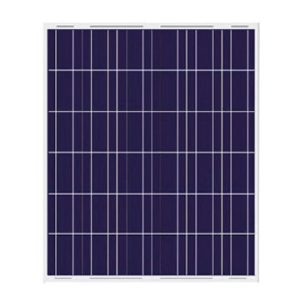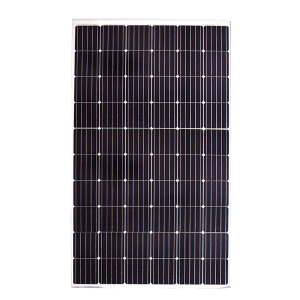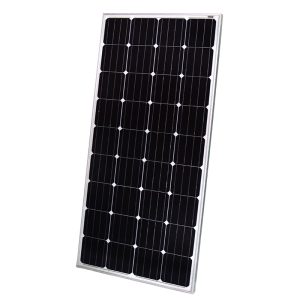Nigeria is blessed with abundant solar resources, with average sun hours of 4 to 7 per day, depending on location. This makes solar PV systems highly viable across the country. As a result, the adoption of solar technology has been rising rapidly over the last few years. 500-watt (500W) solar panels are gaining significant traction for meeting the electricity needs of homes, businesses, schools, hospitals, and more.
Surging Demand is driving down prices.
The Nigerian solar market has been growing at an incredible pace of over 30% annually, and total installations have increased over 4.5 times from 2017 to 2022. Key growth drivers are chronic power shortages, rising electricity tariffs, rural electrification needs, and increased consumer awareness of solar solutions. To tap this exponentially rising demand, many international solar manufacturers and project developers have entered the country. As a result, 500W solar panel prices in Nigeria have reduced from over 300,000 Naira in 2017 to 85,000–225,000 Naira currently, depending on specifications and suppliers.
leading global panel brands available in the 500W segment are C-Worth, Jinko, Canadian Solar, Risen Energy, Longi, etc. Mono panels with higher efficiency tend to be priced on the higher side compared to poly panels. Reputed local suppliers sell imported solar panels with the necessary certifications as per international standards. With scale and intense competition, prices are expected to decline further, making solar energy more affordable for more Nigerian homes and businesses.
Applications Driving 500W Solar Panel Adoption
500-watt solar panels are ideal for a wide range of applications in Nigeria. Whether you want to power your home appliances, commercial equipment, farm/poultry, hospital, school, or business, 500W PV panels deliver the output to meet your needs.
Some common applications include:
- Homes and households: A single 500W panel, along with batteries, can power multiple fans, lights, TVs, phone charging, and basic appliances.
- Commercial establishments—stores, shops, restaurants, lodges, etc.—can fulfill their electricity needs through 500W solar systems.
- Agriculture: solar pumps, cold storage, lighting, and equipment at farms and processing units.
- Social infrastructure: primary health centers, schools, and community centers in rural areas.
- Productive use: power looms, tailoring, milling equipment; microenterprises in rural areas.
- Telecom: 500W panels are mounted on towers across Nigeria to power communication equipment.
- Water supply: solar pumps for drinking water and irrigation in remote villages.
With high temperatures and sunlight available for 270+ days, a 500-watt solar panel in Nigeria can generate 700 to 800 kilowatt hours of electricity per year. This solar power potential is being increasingly harnessed through various government and private sector initiatives.
Government Support Accelerating 500W Solar Panel Installations
The Nigerian government has set an ambitious target for renewable energy contribution to reach 30% by 2030 under the National Renewable Energy Action Plan. This has kicked off several programs to drive solar adoption:
- The Rural Electrification Agency’s Nigeria Electrification Project has energized over 500,000 households and microbusinesses through solar home systems and mini-grids with funding from the World Bank.
- Solar Power Naija initiative was launched in partnership with private developers to provide affordable financing for rooftop solar across households and SMEs.
- A $75 million Results-Based Financing Facility through the Nigerian Energy Support Programme is being utilized to provide subsidies for solar installations.
Such government schemes, along with rising electricity prices, are catalyzing 500W solar panel adoption for reliable and affordable power access.
Key Players Lighting Up the Market
The fast-paced growth has attracted several solar energy companies to enter Nigeria.
- Homegrown firms like Arnergy, Auxano, Darway Coast, Lumos, Havenhill Synergy, GVE Projects, etc. are leading the charge for solar expansion.
- International developers like Engie, CrossBoundary Energy, Solarcentury, Daystar Power, Sunergy Solar, etc. are also aggressively expanding their operations.
- Manufacturers and distributors of world-leading solar brands like Jinko, JA Solar, Renesola, Longi, Trina Solar, etc. have set up supply chains in Nigeria.
In addition to these private players, the Rural Electrification Agency and the Renewable Energy Association of Nigeria are fostering stakeholder partnerships through the government’s renewable programs.
To catalyze growth, several investors and development agencies are also providing funding:
- All On: Funded by Shell to invest in off-grid energy access companies in Nigeria
- USAID, AFDB, and AFREXIM Bank have allocated millions of dollars for Nigeria’s solar and off-grid sectors.
- Solar Energy Fund for Africa: Fund by IFU Denmark investing €57 million in Nigerian solar companies.
Outlook: Expanding Solar Footprint for Affordable and Reliable Power
Abundant solar resources, increasing energy demand, and supportive policies have created the perfect environment for solar adoption in Nigeria. As part of the UN goal of universal energy access by 2030, Nigeria aims to reach 30% rural electrification through off-grid solutions. This will open up a $20+ billion solar market opportunity, according to estimates.
However, challenges around financing, infrastructure, supply chains, and regulations need to be addressed by both the public and private sectors. The high upfront cost of solar panels and batteries remains unaffordable for the majority of rural households in Nigeria. Innovative pay-as-you-go and lease-based models can help overcome this adoption barrier. With the costs of solar technology projected to fall further, 500W solar panel systems, along with the necessary financing, can electrify millions of unelectrified homes and drive productive use cases across farms and microenterprises.
If you are looking to install 500W solar panels in your home, business, or community, connect with our solar experts for customized solutions that maximize savings.



